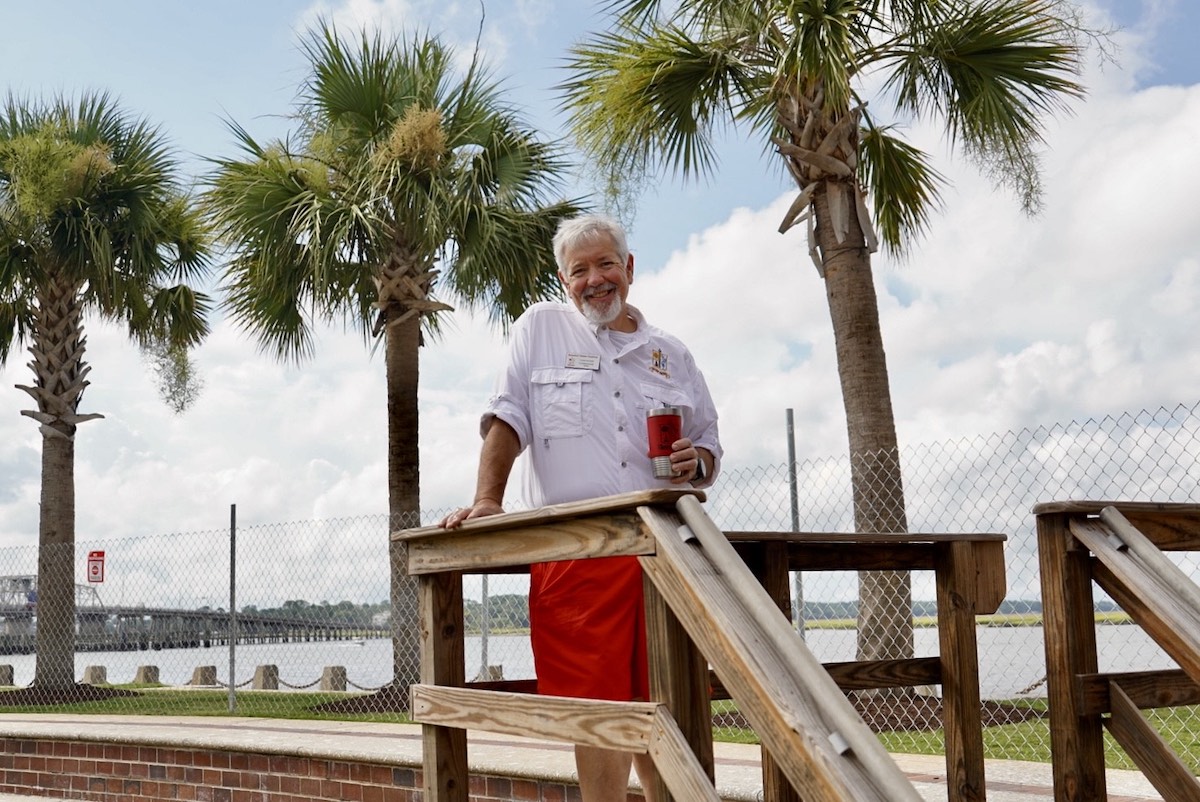By Scott Graber
It is Saturday, early, and I’m in our darkened dining room looking out on a wet deck. Sometime during the night we had a light, lengthy rain and that will translate into grass-cutting later this weekend.
Friday’s Beaufort Gazette tells us that Elizabeth Bergmann has gotten a stop work order bringing the slice-by-slice removal of a live oak, in Port Royal, to a halt. She has also filed an appeal that questions the Town’s issuance of its tree-cutting permit.
For as long as I can remember Beaufort County has been engaged in an internal, internecine debate over the value of its trees. The latest iteration of that battle is being fought just off 12th Street in Port Royal. But skirmishes are a reliable part of our history.
As these things happen the developer gets his paperwork filed and his permission to cut. The hard-hatted, yellow-vested men with chainsaws arrive and begin to slice away limbs before going after the trunk itself. This then brings out a stunned crowd who sometimes convince the men to stop. Sometimes this leads the developer to reconsider. But not often.
When I arrived in Beaufort in 1971, my wife and I played tennis almost every day at the tennis courts on Boundary Street. If memory serves there were only two courts in those long-gone days.
The City of Beaufort decided that more courts were needed — perhaps five — and that meant two oak trees had to come down. We just happened to be on the court when the men with chainsaws made their appearance.
In those days Beaufort had a Town Council but was actually governed by its young, boyishly-handsome Mayor, Henry Chambers. I remember leaving the courts in white shorts and Converse tennis shoes and making our way over to Town Hall, which was then located in the old Carnegie Library.
Chambers stopped the meeting, put our little delegation on the agenda, and after 10 minutes of discussion ruled that the trees should be spared at the expense of one of the proposed tennis courts. I remember leaving Town Hall thinking, “Yes. By damn. This is how democracy works!”
Later, when Susan and I moved to Port Royal, this scenario played itself out in a less happy fashion. Usually the oak tree stood in the way of an underground (gasoline) storage tank that would be needed by a forthcoming convenience store. I was given to believe that the convenience store broke even on the sale of gas, but it needed the lure of gasoline sales for the profits made on Pepsi-Cola, mini-donuts and Cheetos. But whatever the formula the Town of Port Royal needed the tax revenue.
I was told that the taxes collected from convenience stores, car wash facilities and fast food restaurants along Ribaut Road were absolutely necessary to pay tab for the Town’s fire trucks, police cruisers and the salaries of its employees. The question came down to whether the Town wanted to preserve its tree canopy or pay for the cost of its ever-increasing healthcare benefits.
Some years later a grocery store came to Beaufort needing a vast, soccer field-sized parking lot. It seems to me that the development regulations dictated the number of spaces and that number dictated the removal of a dozen oak trees. But I believed that the real issue — the underlying issue — were the taxes that would be lost if the store was not built. Later, annexation gave an advantage (to the developer) as well.
Apparently the Port Royal ordinance requires that the Town consider five criteria before granting permission to cut. Also, the developer must look at “design alternatives” which might translate into a smaller house and the argument of less money to the developer. But in many places, especially in Florida, mature trees are considered an asset.
The Wall Street Journal (April 21, 2021) tells us that Walter Acree, a businessman in South Florida, uses trucks, barges and a 300-ton crane to move “trophy trees” onto the lots of the ultra-rich. “A unique or particularly old tree, like a piece of art, is also a great conversation piece. Lastly, it means that high-net-worth buyers don’t have to wait for a newly planted tree to grow on their site.”
It appears that developers are beginning to understand that a mature tree is an asset. But that may mean a smaller, uniquely-designed house that works its way around the ancient trunk.
Scott Graber is a lawyer, novelist, veteran columnist and longtime resident of Port Royal. He can be reached at cscottgraber@gmail.com.










